
When you buy a condo unit you receive a deed to your unit and have the non-exclusive use of the common elements collectively with all residents. Each condo owner is a member of the Condominium Corporation and these members elect or appoint a board of directors to oversee the operation of the development. Owners wishing to sell their unit can do so on the open market, and may sell to whomever, at market value. Some compare condo boards to another level of government, one that is controlled by your neighbours, and challenges arise when individual agendas disrupt the goal of managing and operating the project in a business-like manner. Condos also focus on the investor market, (most people living in condos, sometimes as high as 75%), are renters rather than owners.
In Life Lease communities, there is always a single owner of the property which is responsible for effectively managing the operation on behalf of all the residents This owner provides residents with a Life Lease interest rather than a deed, and, therefore, has more control over the operation of the community and future transfer or sale of units. Life Lease housing more readily responds to the needs of a group of persons having common interests and shared values. For example, all Life Lease communities have a minimum age requirement to create a cohesive community where residents enjoy similar lifestyles and interests.
Owners of an individual Life Lease unit have the exclusive right to occupy the suite they select and to use the common facilities for as long as they desire, like a condo. Also, like a condominium, owners purchase their lease at market value, and once they take possession of their suite, they pay a monthly fee, which represents the resident’s share of common costs including interior and exterior maintenance, management and insurance. When an owner of a Life Lease suite wishes to sell, they still set the asking price which is also based on market value.
What makes Life Lease attractive is the cohesive community of shared values and interests, the ability to become directly involved, and the availability of services and programs designed for an age-exclusive demographic. It also has the added benefit of greater control over membership, with an objective third party ownership which makes for a cohesive community.
Life Lease housing can be closely compared to condominium ownership in terms of tenure and resident participation in the management of the project. However, Life Lease projects have the added benefit of greater control over membership and enjoy above average resale values.
As a pioneer in both the development and property management of more than 75 Market Value Life Lease projects in Ontario (representing over 5,000 units), Gary Zock is considered the leading industry expert in the Life Lease field. Mr. Zock has consulted and advised many government agencies including the Ministry of Municipal Affairs and Housing, Canada Mortgage and Housing Corporation, and Municipal Property Assessment Corporation. He brings 30 plus years of experience in this very specialized area and is a great asset as the Project Manager for The Village at St. Elizabeth Mills.
Find Out More at the Frequent Asked Questions at LivingWithZest.com
